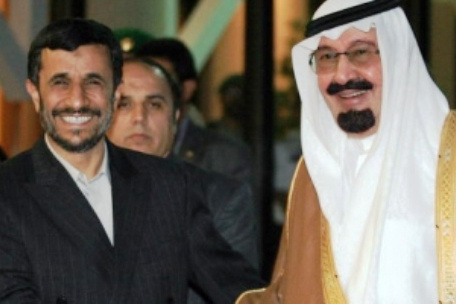Tehran Should Activate its Arab Diplomacy

By: Amir Mousavi
To be or not to be. The feasibility of an Israeli attack on Iran is influenced by two certain conditions:
1. The Israelis should appreciate Iran’s deterrence power and be convinced that it can be destructive to their country. Currently, there are two viewpoints among the Israeli security officials and politicians: a) the Islamic Republic of Iran practically wields destructive power that can seriously challenge Israel. This is the belief held by the military and security theorists in Israel. They are cognizant of the missile power that can turn Iran into regional security power. Some analysts, who in fact form the majority of their ilk in Israel, argue that Iran is keeping its light under the bushel, to reveal in due time--- the zero hour-- via an immediate action; b) others argue that Iran is not powerful enough to withstand destructive damages. Netanyahu, Obama and Peres support this viewpoint, as they think they can wreak havoc on Iran and destroy its nuclear and strategic facilities, whether military or civilian, including power plants. This viewpoint prevails among the higher echelon of the decision-making elite, but not among the active military.
2. Israel is not yet certain whether it will be supported by the US, and whether NATO will be involved in the operation. In the meantime, the stance to be adopted by the Persian Gulf Arab states will be a decisive factor. Three specific countries will most likely encourage the US and Israel to attack Iran, probably providing them with logistical support. Note that the US is also withdrawing its forces from Iraq—on schedule to be completed within a little more than a month-- while it has clarified that it will not guarantee Iraq’s security anymore. The US move could be interpreted as a green light to Israel to use Iraq’s air space to attack Iran, as a more convenient trajectory in comparison with Turkey’s or Georgia’s air space. Israel will launch its military operation only after it is guaranteed support by the US, NATO and some Arab countries.
While certain Arab countries are prodding Israel to attack Iran as soon as possible, Turkey is at the hum and haw stage. An international confab is scheduled to be held in Riyadh in the next few months with attendance of Turkey, Arab countries, EU Foreign Affairs Commissioner Catherine Ashton, and NATO commanders to discuss regional security arrangements in the wake of the Arab Spring. Striking Iran may perhaps appear on the agenda of the conference, which will turn the convention into a conspiratorial gathering that further complicates circumstances in the Middle East. The latest allegation raised against Tehran is selling chemical weapons and their know-how to the former Libyan dictator Muammar Qaddafi. The psychological warfare against Iran is at its peak and Iran has failed to counter the adverse propaganda successfully, hence the negative vote of close friends such as Lebanon, Syria and Sudan against us in the latest UN General Assembly.
To contain the current crisis, the Iranian diplomatic apparatus should materialize the following procedures:
1- Iran must deal effectively and wisely with the IAEA and its inspection committee. Iran should remind the committee of the diplomatic ground rules which need to be observed. If it is revealed that Amano’s claims and the CIA’s allegations have been misleading, the international community should take steps towards abolishing the sanctions.
2- Iran's diplomacy regarding the Arab street and the Muslim World is clearly ineffective. Unfortunately, the Arabs and other Muslim nations have refused to support Iran. To overcome this problem, what we need is a significant diplomatic shift. Iran's absolutely justified stance is undermined by its diplomatic lethargy. What we need is to hold regional and international conferences in order to enjoy the fruit of the Islamic Awakening in the Arab countries. Today, Iran faces security and diplomatic challenges and even its friends cannot defend it in international circles.
*Amir Mousavi is a strategic affairs expert and an advisor to the minister of defense.

